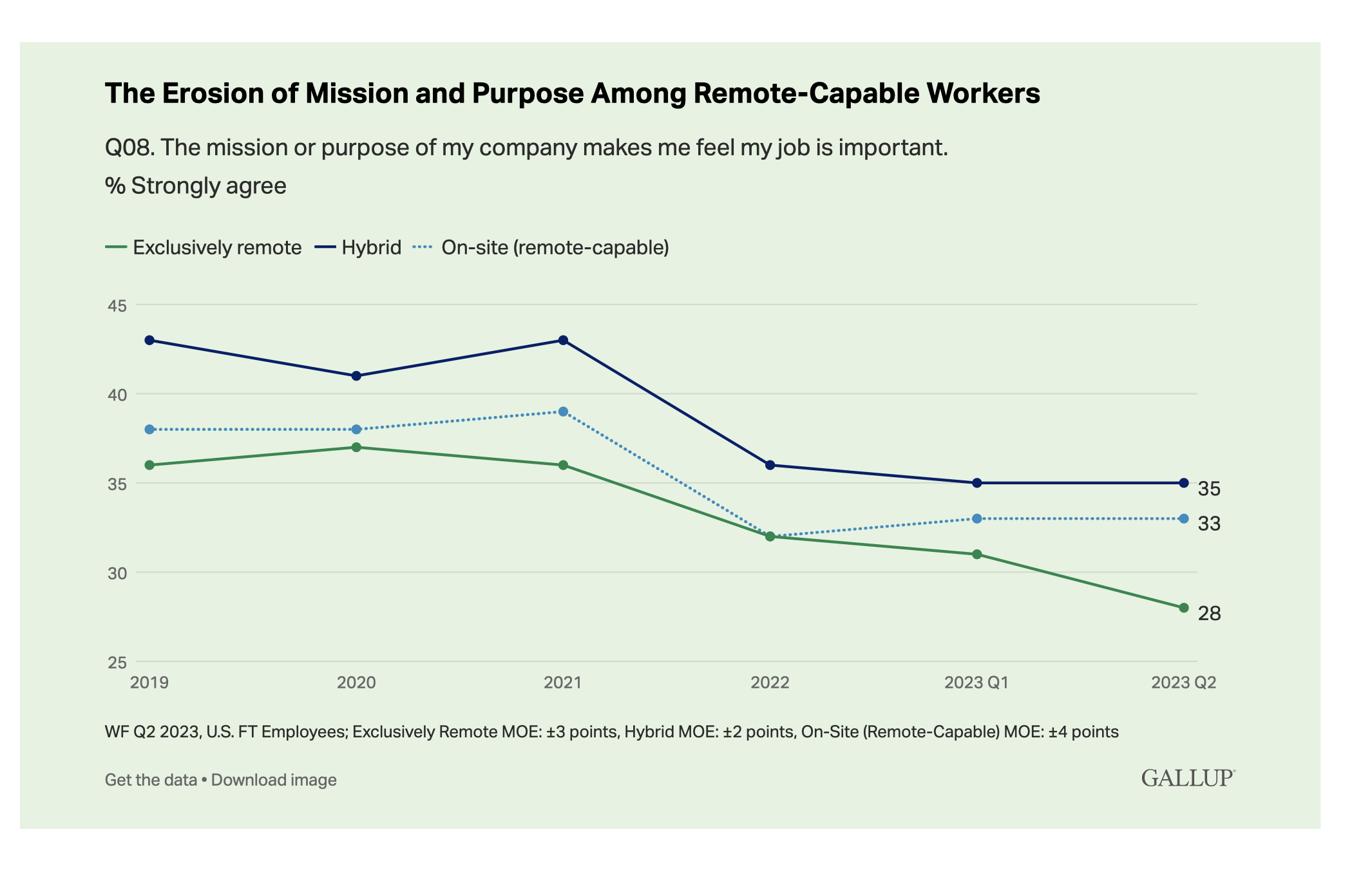For years now, companies have been focused on becoming purpose-driven organizations. A company that understands why it exists, the thinking goes, is in a better position to attract and retain the best talent, not just sell more stuff.
In a world where hybrid work is here to stay, however, it appears that keeping employees connected to that purpose and the culture of your company is getting harder.
According to Gallup, remote employees–particularly exclusively remote workers–have an eroding connection to the purpose of their organization. 28% strongly agree they feel connected to their organization’s mission and purpose, tying the record low for this group from 2011.
On the surface, this data is perhaps not hugely surprising. It seems logical that workers who have fewer moments of in-person engagement with their boss, peers and office might feel less connected.
But the decline is not good news–especially for companies that are committed to living their purpose, not just communicating it. If employees don’t connect with their purpose, the company’s brand will erode. Employees will be less likely to engage others, innovate, deliver a great customer experience and want to work at the company.
One thing that companies can do to reverse this trend is to be more intentional about how they design their culture for hybrid and fully remote workers.
Instead of taking an old-school, top-down approach to culture, now more than ever organizations would do well to think from the perspective of the worker and focus on the little, day-to-day moments that matter to employees.
By creating experiences that make individual hybrid and remote feel seen, heard and recognized in alignment with the organization’s purpose, companies give themselves a greater chance to live out the purpose they believe in.
